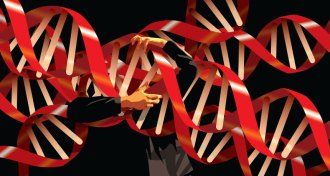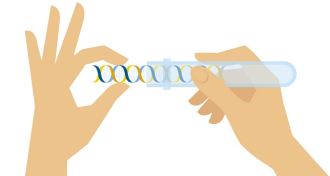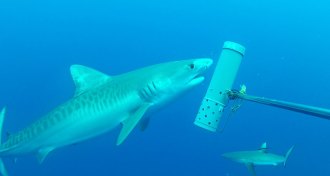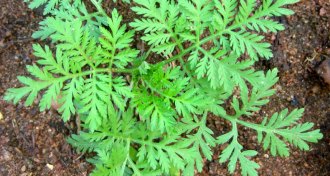Genetics
-
 Genetics
GeneticsSpecial report: Genetic testing goes mainstream
Consumer genetic tests may not tell customers that much about themselves. Science News delves into these tests in a multipart series.
-
 Genetics
GeneticsWhat genetic tests from 23andMe, Veritas and Genos really told me about my health
A Science News reporter tried out three consumer genetic testing companies to see what people really learn about their health.
-
 Anthropology
AnthropologyAncient Chinese farmers sowed literal seeds of change in Southeast Asia
Two waves of ancient migration from China to Southeast Asia spread farming and languages.
By Bruce Bower -
 Science & Society
Science & SocietyWe’ve got the genes for science journalism
Editor in Chief Nancy Shute discusses how genetic testing might not be reliable enough for people to plan for the future.
By Nancy Shute -
 Life
LifeThere’s a genetic explanation for why warmer nests turn turtles female
Scientists have found a temperature-responsive gene that controls young turtles’ sex fate.
-
 Animals
AnimalsHere’s how to use DNA to find elusive sharks
Hard-to-find sharks that divers and cameras miss appear in genetic traces in the ocean.
By Susan Milius -
 Genetics
GeneticsAdapting to life in the north may have been a real headache
A cold-sensing protein has adapted to different local climates, also affecting risk of migraine.
-
 Particle Physics
Particle PhysicsReaders puzzled by particle physics and a papal decree
Readers had questions about neutrinoless double beta decay and the history of domesticated rabbits.
-
 Plants
PlantsNew genetic details may help roses come up smelling like, well, roses
A detailed genetic look at China roses and an old European species shows that there’s a built-in trade-off between color and scent.
By Susan Milius -
 Genetics
GeneticsNew genetic sleuthing tools helped track down the Golden State Killer suspect
DNA sleuths may have adapted new techniques for identifying John and Jane Does to track down a serial killer suspect.
-
 Plants
PlantsGenetically modified plant may boost supply of a powerful malaria drug
Using a DNA study and genetic engineering, researchers tripled the amount of an antimalarial compound naturally produced by sweet wormwood plants.
By Dan Garisto -
 Genetics
GeneticsCicadas on different schedules can hybridize
A new genetic study suggests that cicadas that emerge every 17 years have swapped genetic material with those that emerge every 13 years.